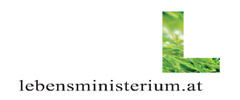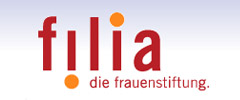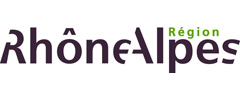Women statement at UNEP global consultation on Rio+20 in Bonn, 1-2 September 2011
Representatives of the women's Rio+20 steering committee from Africa and Europe took part in the UNEP major group and stakeholders global consultation on Rio+20 in Bonn, 1-2 September 2011.
12.10.2011 |Sascha Gabizon

Women's statement presented at the UNEP major group global consultation on Rio+20.
This statement was prepared by Alice Odingo, Soroptomists International Kenya, Kaisha Atakhanova Social Eco-Fund Kazakhstan, Regina Amadi Voices of African Mothers Nigeria, Sabina Mensah Voices of African Mothers Ghana, Sabine Bock WECF Germany, Sascha Gabizon WECF Netherlands and Anne Barre WECF France.
1. Women’s position on the “Green Economy”
1.1. Equity as the basic principle
- We do not want growth without equity, not even green growth.
- The economy is sustained by women and the earth.
- A ‘green’ economic system must promote social equity, gender equity and intergenerational equity
- A truly sustainable ‘green economy’ functions within the limits of the planet, and ensures a fair distribution of resources among all countries and social groups - as well as between men and women.
- We need an economy that provides incentives for zero-waste, low-carbon economies that enhance and restore the natural environment, while also providing new ‘green’ livelihoods, employment and entrepreneurial opportunities for women as well as men.
- Social equity and environmental justice must remain at the heart of sustainable development, and the outcomes of the Rio+20 UN conference in 2012.
- We call for targets to training and creation of green and decent jobs for women in Rio+20 road maps.
- Most of the poor are women. To participate in the green economy the poor need access to basic services and we call for a basic income for women in low income groups.
1.2. Women priority areas - sustainable technologies
- One area of interest of women, which women see as a threat to our generation and to that of our children, is that of nuclear industry.
- Based on the UNEP foresight report, we call on governments to start developing legally binding mechanisms to address the cost of decommissioning and clean up of nuclear power-plants, nuclear waste and uranium mines.
- We are calling UN to develop a global strategy to address the risks that nuclear energy and the whole uranium cycle, such as mining and waste disposal, pose to global environment and human lives and health, and decide on an effective and quick global government response.
- We need to establish the institutional framework and the financial means to document, monitor and assess the environmental damages and risks of Nuclear and Uranium Technologies. Such an institution shall make comprehensive use of all parties concerned and their diverse types of knowledge and experience.
- Redress and clean-up should be financed according to the polluter-pays-principle, amongst others by mining industry.
- Call for a UN rapporteur on uranium and nuclear risks
2. Women’s Position on Institutional Framework for Sustainable Development
2.1. Women in Governance
- All recent studies show that communities and the economy benefit from women’s increased political participation.
- We also need stronger environment and sustainable development governance at the national level.
- Sustainable development needs full women’s participation, we call on all government to aim at 50% women representation in decision making posts, from local level to national level.
2.2. Environmental Governance
- The women’s major group sees the need for fundamental reform of International Environmental Governance.
- We therefore call on governments to support upgrading of UNEP to a UN agency
- We call for the governing council UNEP to also increase women’s participation in the UNEP processes, amongst others according to the Aarhus guidelines on international environmental processes.
2.3. Financing Sustainable Development
- Financing of sustainable development needs a reform of global funding mechanisms, and better regulation of financial markets, and increased accessibility for women of funding mechanisms.
- We call on governments to support the introduction of the financial transaction tax and to commit to channelling a considerable share into a green and inclusive, social just investments, with a significant share going to local community development.
- Funding mechanisms needs to guarantee prior informed consent and rights of communities impacted by the financial flows, timely information, effective participation, and redress mechanisms.
Related News
Meet the Winners of the Gender Just Climate Solutions Award at COP24
On the 70th anniversary of the Universal Declaration of Human Rights, we awarded Gender Just Climate Solutions Winners at the climate negotiations in Katowice, Poland
11.12.2018
Invitation: Gender Just Climate Solutions Award 2018
10 December, COP24 Katowice
04.12.2018
Getting to the Future We Want
4-7 November, Brussels: European Environmental Bureau’s (EEB) Annual Conference
12.11.2018
GoodFood4All
WECF and partners all over Europe start GoodFood4All Campaign
06.11.2018
#Ruralwomen: join our Women2030 campaign!
15.10.2018





































